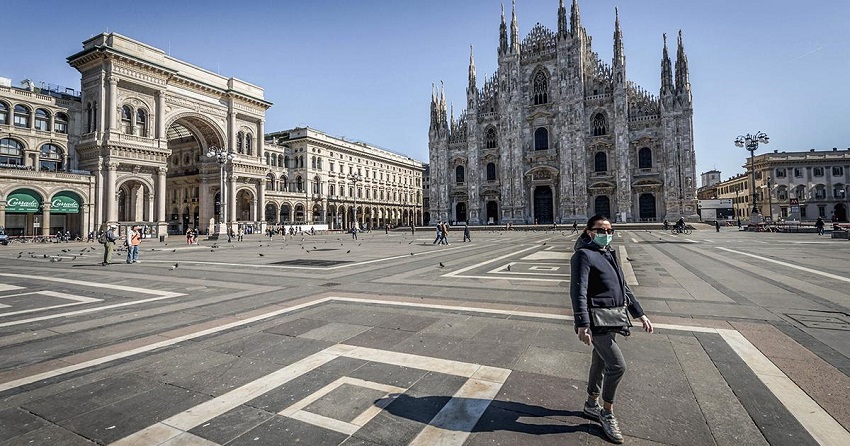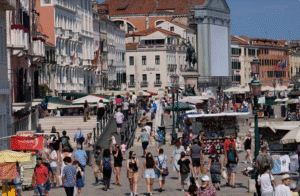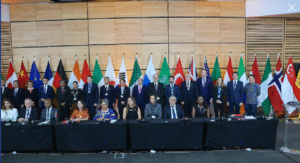Travel to return first to domestic markets : WTTC

Travel Biz News —
The tourism sector will face a gradual return to travel over the coming months as a “new normal” emerges before a vaccine becomes available on a mass scale, large enough to inoculate billions of people, according to World Travel & Tourism Council (WTTC) .
WTTC has outlined what the “new normal” will look like as countries begin to end their COVID-19 lockdowns and ease travel restrictions.
“Travelling in the New Normal” is part of WTTC’s plan which includes critical steps and coordinated actions, including new standards and protocols, which offer a safe and responsible road to recovery for the global Travel & Tourism sector as consumers start planning trips again.
For the last few weeks, WTTC, which represents the global travel and tourism private sector, has been marshalling the efforts of the private sector, sharing best practices from different regions around the world to work on the path forward.
Public-private collaboration between business and governments is vital to develop new health protocols which will form the travel experience and also provide people with strong reassurances when travelling.
Travel is likely to return first to domestic markets with staycations; then to a country’s nearest neighbours before expanding across regions, and then finally across continents to welcome the return of journeys to long-haul international destinations.
WTTC believes younger travellers in the 18-35 age group, who appear to be less vulnerable to COVID-19, may also be among the first to begin travelling once again.
“We should avoid new, unnecessary procedures that create bottle necks and slow down the recovery. However, a quick and effective restart of travel will only happen if governments around the world agree to a common set of health protocols developed by the private sector, such as those we’ve outlined , ” Gloria Guevara, WTTC President & CEO, said .
“These must provide the reassurance travellers and authorities need, using new technology, to offer hassle-free, pre-vaccine ‘new normal’ travel in the short term.”
The new protocols and standards are being defined following feedback and multiple conversations with WTTC Members, as well collaboration from associations who represent the different travel sectors.
This includes the International Air Transport Association (IATA), the Airport Council International (ACI), Cruise Lines International Association (CLIA), United States Travel Association (USTA), Pacific Asia Travel Association (PATA), International Civil Aviation Organisation (ICAO), the Organisation for Economic Co-operation and Development (OECD), the European Travel Commission (ETC) and the World Tourism Organisation (UNWTO).
IATA, ACI and ICAO are pooling their crucial expertise and are working closely to define the best protocols to keep travellers and employees safe to enable the aviation sector to recover.
The World Health Organisation (WHO) and other health experts have also contributed by providing their experience from various global medical crises.
To offer world-class cleanliness, improved hygiene standards and ensure guest safety, hotels are developing protocols based on learnings from offering free rooms to frontline healthcare workers during the COVID-19 crisis.
There will be new protocols for check-in involving digital technology; hand sanitiser stations at frequent points including where luggage is stored; contactless payment instead of cash; using stairs more often than lifts where the 2 meter rule can be harder to maintain; and fitness equipment being moved for greater separation among other examples.
Cruise operators will take further measures to ensure ships are free of COVID-19 including staff wearing gloves at all times which are then frequently changed; and more frequent room cleaning.
Travellers at airports will find themselves tested before they fly and upon arrival at their destination airport. They can expect to see social distancing measures at the airport and during boarding, as well as wearing masks while onboard.
Aircraft will also be subject to intensive cleansing regimes. These measures will be combined with contact-tracing, via mobile app, that will allow flights to leave airports COVID-19-free.
The protocols, which have been developed using experience from China’s initial recovery and from new successful standards used by retailers, will be fully announced in the next two weeks and shared with governments globally, so there is a coordinated approach to travelling within the COVID-19 world.
There are positive signs of the first green shoots of recovery. Research by travel data and analytics expert Cirium shows that over 30% of domestic capacity has returned to the Chinese aviation market in the last two months.
Domestic flights have also resumed in some countries, such as in Vietnam between Ho Chi Minh City and Hanoi, with Vietnam recording relatively few coronavirus fatalities.
To speed up the global recovery WTTC will continue to work closely with the G20, EU, international organisations and governments around the world to help translate the new protocols into easily adopted public policies by each country while adhering to common global standards.
WTTC says the travel and tourism sector is now facing over 100 million job losses worldwide due to the coronavirus pandemic, at a cost of up to US$2.7 trillion of GDP.
In 2019, travel and tourism contributed 10.3 per cent of Global GDP, was responsible for generating one in four of the world’s new jobs and, for nine successive years, had outpaced the growth of the global economy. Source : WTTC
Image : A scene of Milan during Italy’s lockdown. Photo: Human Rights Watch May , 2020














